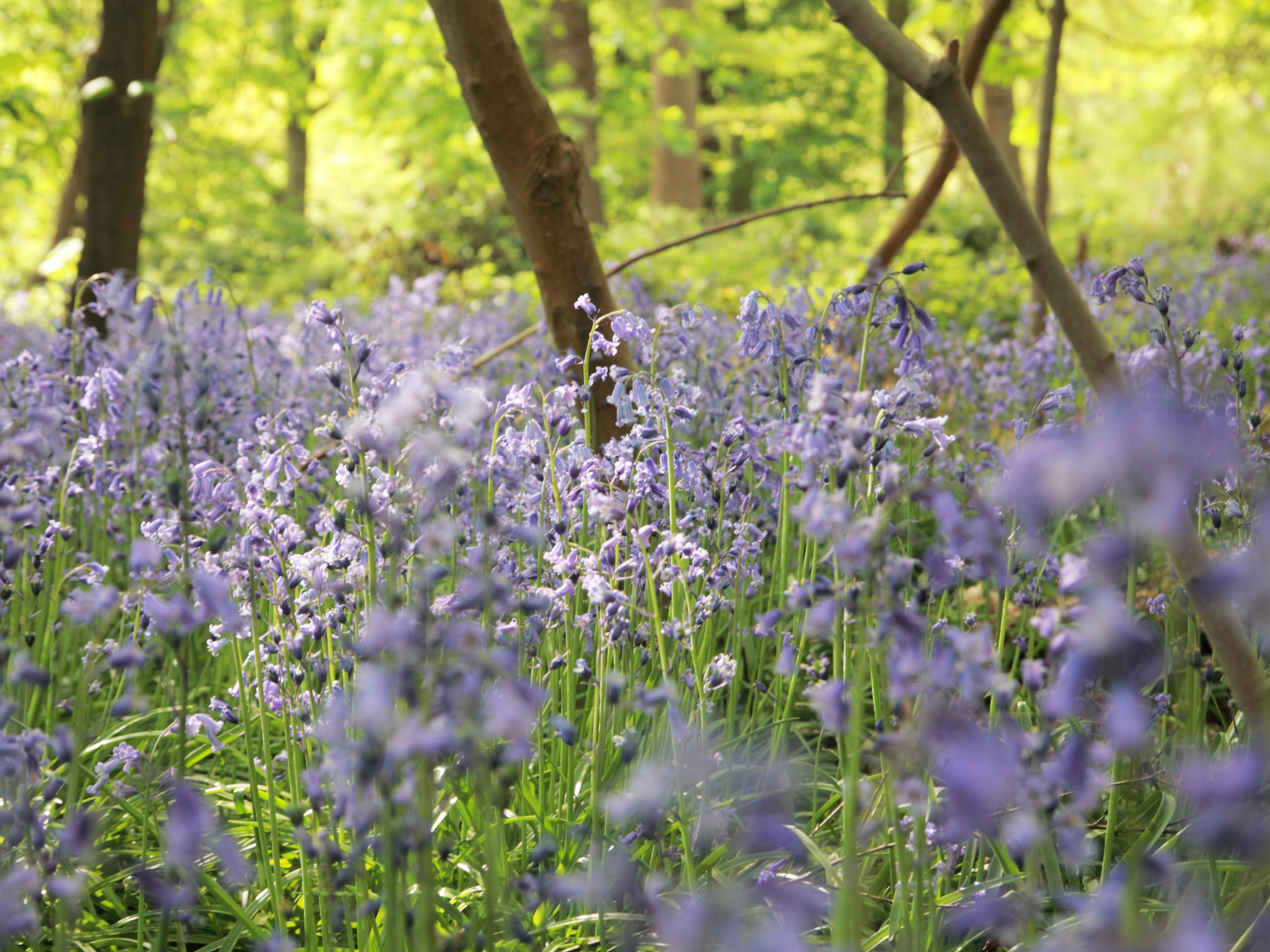Fears foreign bluebells could make British variety extinct are unfounded, scientists say
Native flowers have higher fertility and exist in huge numbers in UK

Fears Spanish bluebells could make its British counterpart go extinct are largely unfounded, scientists say.
According to genetic tests, the native variety has a higher fertility and already exists in huge numbers in the wild, meaning its chances of being wiped out are unlikely.
The Spanish bluebell, which escaped into the wild after Victorians introduced it to Britain as a garden plant, had raised concerns it could mix with the British bluebell, leading to the loss of a flower which covers woodland floors in the spring.
The native species, Hyacinthoides non-scripta, remains one of Britain’s most treasured flowers, and can be found today alongside the Spanish variety, Hyacinthoides hispanica.
Though the two look similar, the British plant has narrower leaves, a deeper shade of blue, and tubular bell-shaped flowers that curl back at the ends. The Spanish bluebell’s flowers are broader and do not curl back.
Research by scientists at the University of Toronto and Lincoln University in New Zealand, the results of which were published in the journal Conservation Genetics, showed the British bluebell set more seeds than the Spanish one.
In order to compare them, the authors of the study planted large numbers of Spanish bluebells next to native ones and allowed them to breed naturally.
“Our results demonstrate that hybridisation in natural populations and introgression between natives and non-natives are possible,” the authors say in the study.

“However, lower reproductive success of non-natives coupled with the massive numerical advantage of natives represents a substantial constraint against ‘extinction-by-hybridisation’ of [Hyacinthoides non-scripta] in the UK.”
Join our commenting forum
Join thought-provoking conversations, follow other Independent readers and see their replies
Comments
Bookmark popover
Removed from bookmarks